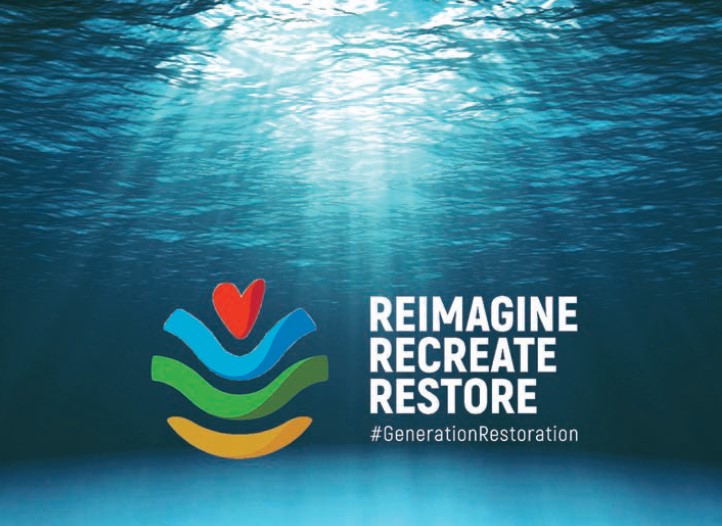The United Nations (UN) Decade on Ecosystem Restoration, announced in March 2019, was launched on the World Environment Day, June 5. The global rallying cry for viable and lasting solutions was initiated under the leadership of the UN Environment Program (UNEP) and the UN Food and Agriculture Organization (FAO) with the aim of uniting member states, local governments, business, academia and civil society to take action. With the slogan “Reimagine; Recreate; Restore”, it was announced that there should be generations that will make peace with their nature; renew, revitalize and protect their damaged ecosystems.
Biodiversity, defined as plants, animals and microorganisms in our world's land and water ecosystems, is the power, present and future of our nature. We live, take shelter, feed and work together to develop the industry and grow the economy. Most importantly, we want to be healthy and happy. However, if nature is not healthy and happy, humans cannot be healthy and happy. Humans are disrupting the health and order in green and blue by gradually destroying biodiversity and damaging the ecosystems. While 1 million plant and animal species are in danger of extinction in our damaged nature, with the Covid-19 outbreak we have learned by bitter experience about the need to address threats to ecosystems and wildlife. Biodiversity means forests, fields, rivers, sea, food. Briefly, it is the support of our life. For these reasons, if there is a problem with biodiversity, humanity will have bigger problems. For our future, we must prevent biodiversity from being at increased risk. It is a must to heal and renew the ecosystems to be able to overcome the climate crisis, ensure food and water security, health and biodiversity.
Humans cannot lead a healthy life without restoring ecosystems. The healthier our ecosystems are, the healthier the planet and people will be. Success will come only when the citizens and industry act together in the rally to restore the ecosystem through careful work and patient implementation. We should keep clean our cities, land, coasts, seas, the world we live in, avoid releasing pollutants and waste to the air, soil and water. Because the next decade will be our last chance against the climate crisis and mass extinction. A Global Rallying Cry for Ecosystem Restoration is a must.
In this rally, the interaction between lubricants and waste lubricant ecosystem is important. When lubricants and waste lubricants interact with, leak, release or spill into soil and water, they directly or indirectly affect the ecosystem, threatening the planet and human beings. Groundwater is affected. When lakes, rivers, seas, coastal waters are polluted with oil or waste oil, the oil that accumulates on the surface destroys the aquatic ecosystem, the food chain is affected, and life is disrupted. The latest situation in the Marmara Sea has taught us by bitter experience the importance of protecting the aquatic ecosystem and the effects of biological disasters. Marine fuels and lubricants are critical for the marine ecosystem. Ship-derived fuel exhaust gas pollution and the effects of end-of-life oils need to be well managed. In addition, the management of lubricant packages and barrels that have completed their useful life is also important. Another important negative effect is the illegal burning of waste oils in indoor environments (such as workplaces, greenhouses), causing air pollution and harming human and natural health. For these reasons, ecosystem-friendly lubricant production and waste oil management is a must. Eco-friendly lubricants suit the blue of the sea.













